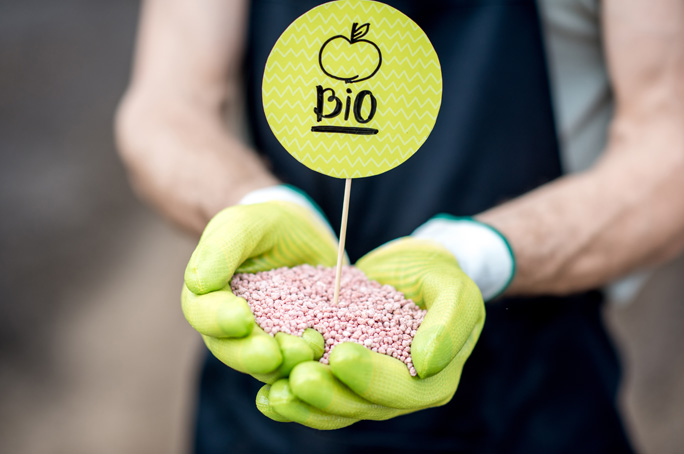Organic fertilizers, also referred to as “natural,” are derived from plant or animal residues and by-products. The most typical examples are manures, compost, and bone meal. Synthetic fertilizers, also known as “chemical,” are synthesized from inorganic materials. Some examples of chemical fertilizers are ammonium phosphate, sodium nitrate, and urea.
There is a remarkable difference between organic and synthetic fertilizers in terms of accessibility and usability, the speed and volume of nutrient delivery to the plant, as well as the effects on the soil and the environment. So, which of the two types is better for your lawn and garden?
Accessibility and Usability

Chemical fertilizers are available in various forms, packages, and volumes. They are less expensive, and you can always buy exactly the amount you need at a nearby garden store.
Organic fertilizers tend to be more costly than their mineral counterparts. However, you can get them for free by composting or opt for affordable sources, such as local farms.
You may find it more difficult to handle and disperse some types of organic fertilizers, although many of them are already available in a convenient form (powders, granules, and liquids). Transportation and storage of organic fertilizers may be harder, too, and their shelf life is considerably shorter.
Nutrient Power and Effect

Synthetic fertilizers boast of high and well-balanced nutrient content in an easily releasable form. They contain nitrogen, potassium, and phosphorus, which are the three essential plant nutrients. It’s exactly what you need for a quick fix to your plant or soil trouble. However, due to the highly soluble nature of mineral fertilizers, the effect may be short-lasting.
Remember that great nutrient power requires careful handling—avoid overfeeding your plants. Chemical over-fertilization may lead to the condition known as the “fertilizer burn”—extreme dehydration of plants that damages their sensitive tissues and roots. Be sure to strictly follow the manufacturer’s directions for a predictable and reliable result.
With organic options, the result may be not so precise and evident. Organic fertilizers discharge nutrients slowly and thus don’t produce an immediate effect. However, despite a significantly lower nutrient content, they are more effective at improving soil structure and quality over time. Their slow-working nature makes it almost impossible to harm your plants. In addition, they create viable conditions for beneficial microorganisms that help plants thrive.
Make your choice to help your plants flourish! If you choose to combine the two types, make sure to get accurate information about the compatibility of their active ingredients.
